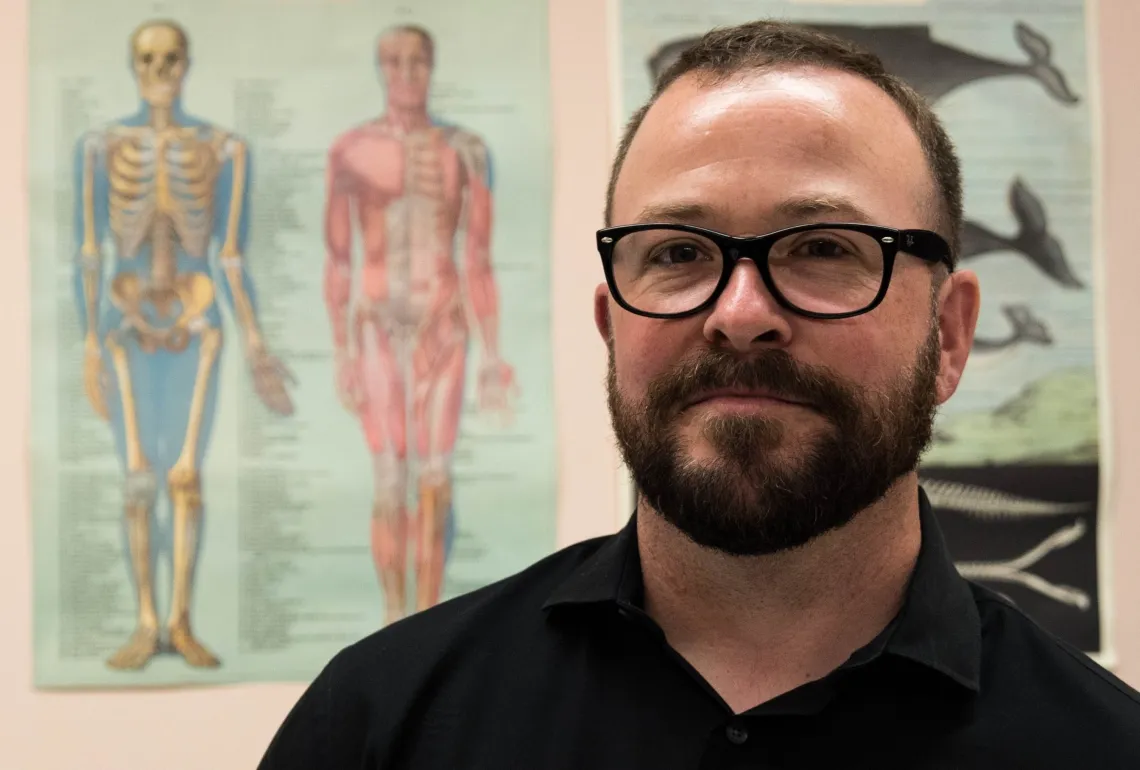Medical Anthropologist Examines Ethics and History of Transgender Medical Procedures

Eric Plemons
Eric Plemons, associate professor in the University of Arizona School of Anthropology, has received a Public Scholars Grant from the National Endowment for the Humanities to work on a new book titled “What to Make of Me: The Transgender Body as a Valuable Resource.”
Plemons is a medical anthropologist who studies the politics and practice of transgender medicine and surgery. His first book, The Look of a Woman (2017, Duke University Press), examines facial feminization surgery, a series of bone and soft tissue reconstructive surgeries intended to feminize the faces of trans- women.
With the NEH grant, Plemons, who is a faculty fellow at Stanford University this year, will be researching and writing a book on the ethics and history of how transgender medical procedures have supported more traditional reproduction and organ transplant technologies.
Transgender people undergoing reconstructive surgeries have been abandoning genital tissues for decades. But in emerging medical research, the historically marginalized transgender body is recast as a source of uniquely valuable material capable of consolidating others’ normative gender, Plemons said.
In the first case, trans women’s penile tissue could be used to engineer penises for soldiers who have lost them in battle. In the second case, trans men’s uteruses could be used to enable others to become pregnant.
“The NEH Public Scholar’s Grant will help support fieldwork in clinical and research environments where this new science is being developed and give me time to complete archival work and the writing process,” Plemons said.
Q: Why did you decide to write a book on this topic now?
Transgender genital reconstruction surgeries are increasing in the United States. So is the accessibility of uterine transplant. And so is the military need for tissue-engineered genitals to repair/replace those lost in record-setting rates of genital injury in Iraqi and Afghan conflicts.
In this context, it makes sense that some researchers would seek a way to use the healthy tissues surrendered by one group to meet the needs of the others. But this is not a simple utilitarian swap. In order to harvest their organs for transplant, the prospective trans donor would have to undergo much more complex and invasive surgeries than is current practice. Proponents justify the enormity of these interventions by emphasizing the immeasurable value that intact penises or functional uteruses would have for those potential recipients suffering without them. What has been left unaddressed are the implications of these proposed transactions for the transgender person.
What to Make of Me is a unique book not only because it examines emerging areas of medicine, but because it engages the histories and dynamics of medical fields that have not typically been in conversation -- transgender transition, organ transplantation, tissue engineering, and assisted reproductive technologies.
Q: How will you be conducting research on this topic?
What to Make of Me blends archival work on the history of medicine with ethnographic and interview-based research among investigators and patients who are contributing to emerging medicine in real time. This mixed-methods approach allows me to tell a nuanced and complex story about technologies and desires set in the contexts from which they derive their meaning.
The archival research will focus on the historical contexts – both technical and social – that have shaped the emergence of the medical innovations under study. Transgender medicine is often portrayed as a niche field practiced by a few doctors for the benefit of a few patients. In fact, the knowledge created through the management and treatment of gender variant bodies has been central to a number of medical specialties.
I also will conduct ethnographic research with clinicians, scientists, and patients at three US research institutions, each of which is contributing vital new insights into these rapidly changing fields of specialty medicine.
As an anthropologist, I am committed to learning from and with those people whose lives are shaped in profound ways, both by developing expertise in these fields and being subject to their interventions.

